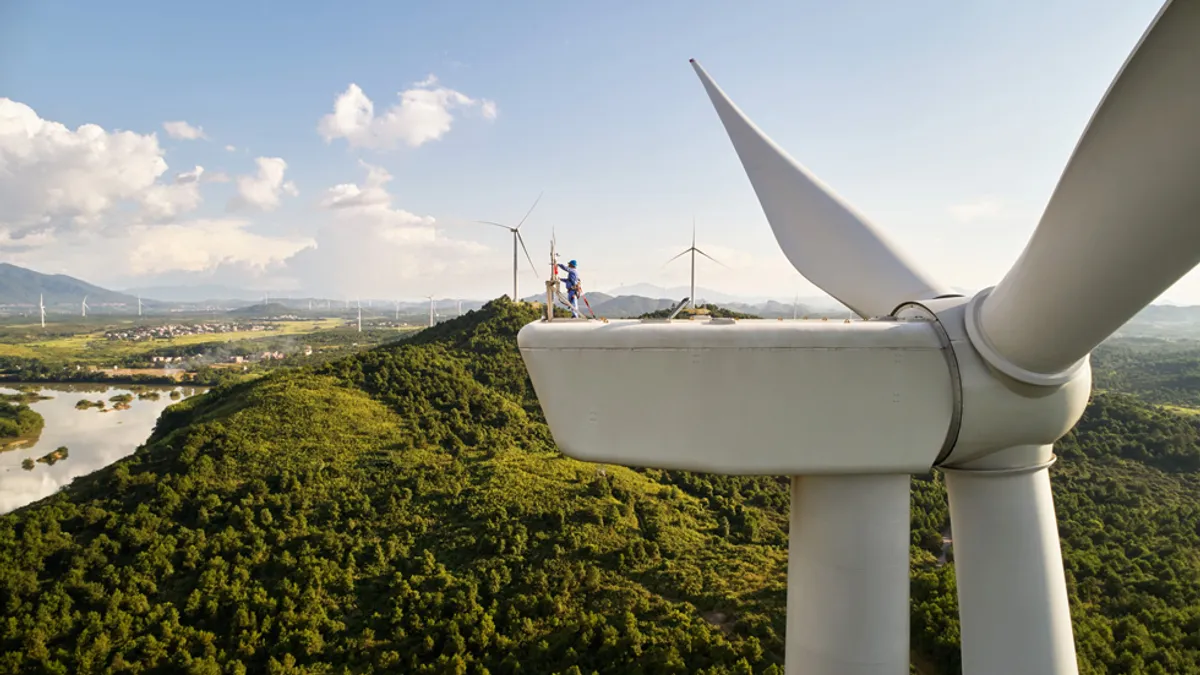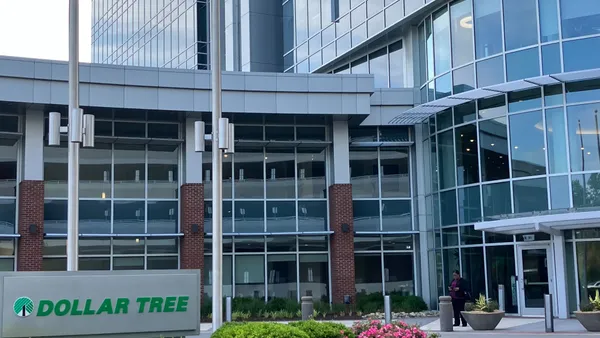Dive Brief:
- The push to make supply chains more sustainable came from many stakeholders in 2020, but executives were the most likely to pressure their companies to make commitments, according to the State of the Supply Chain Sustainability 2021 report.
- "Respondents who felt that their employers have high commitments also reported that the strongest pressure was from company executives," said David Correll, a research scientist at Massachusetts Institute of Technology's Center for Transportation & Logistics. MIT CTL authored the report alongside the Council of Supply Chain Management Professionals (CSCMP).
- It's the second year the two organizations conducted the report, and in 2020, during the coronavirus pandemic, commitments to sustainability grew from the previous year. The report found that 52% of respondents said their company had supply chain sustainability goals, a 4% increase from 2019. And 82% said their companies' commitments to these goals had either remained or increased since the start of the pandemic, compared to 9% of respondents that decreased commitments.
Dive Insight:
Whether from investors, regulators, consumers or local communities, the pressure companies are facing to become more sustainable is increasing.
Compared to 2019, survey respondents felt a greater or equal push to pursue sustainability from every type of stakeholder, except corporate buyers. And while pressure from investors and government regulators increased the most, each by 8% YoY according to the report, executives are the ones expected to turn questions into commitments.
"We had quite a lot of 'internal pressure' already, as we had ambitious 2020 targets set already in 2009–10. Today, the pressure is both internal and external. This is creating a lot of momentum to innovate in this area," Sergio Barbarino, a research fellow in sustainability at Procter & Gamble, said in the report.
The report, which was based on a survey of 2,400 professionals, a review of 250+ documents, and 21 executive interviews, said there were several reasons why companies increased their commitments to sustainability in the past year. Some executives cited the pressure from stakeholders while others said 2020 provided a unique opportunity to drive organizational change due to the start of the decade or "the extreme volatility" experienced throughout the year, according to the report.
But beyond the commitments, the report also reveals supply chain professionals lack a shared definition for what counts as sustainability and often prioritize different elements as they look to meet their goals.
"A lot of people are interested in sustainability but I think everyone's definition unarticulated in their own mind is a little different," Correll said.
When survey respondents were asked about the specific practices they took to advance supply chain sustainability, they said practices surrounding employee welfare and energy savings were the most commonly included in corporate goals.
Considering the survey was conducted in 2020, "it's not surprising in a way that the social issues came out, you know, fairly highly in the ratings given all the publicity surrounding those issues," said Ken Cottrill, editorial director at MIT CTL. "So, the interesting question will be what are going to be the more permanent sort of issues?"
Earlier this moth, Kevin Smith, CEO at Sustainable Supply Chain Consulting, said executives are paying more attention to sustainability as they learn "more about how much money they can add to the bottom line."
"The supply chain managers that I've talked to today are still very much interested in pursuing sustainability but it's not tree-hugging sustainability," Smith said when asked about sustainability on a press call to discuss the results of a different report. "It's more about efficiency drivers that you can morph into your business."















